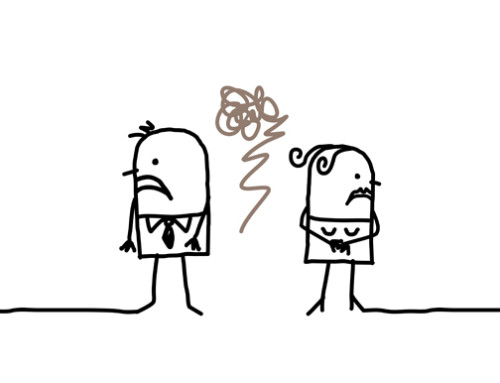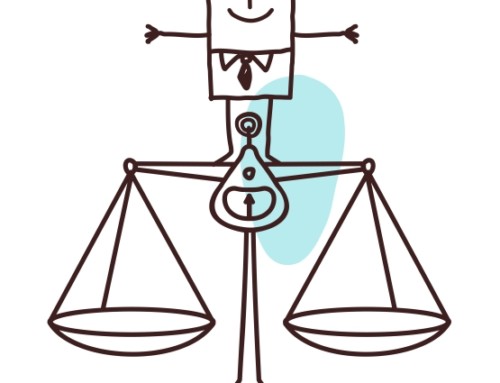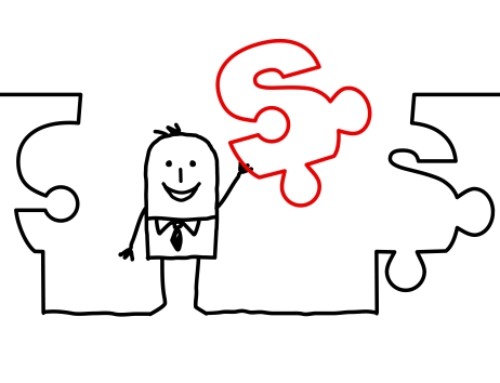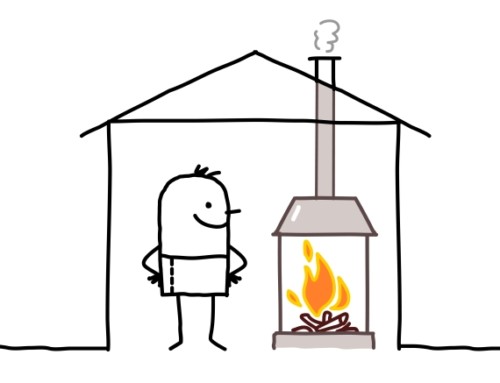In this article, I answer two questions: (1) Should you focus on events from your past in counselling?; and (2) How can discussing events from your past help you in the present?
As a Calgary psychologist and a Cochrane psychologist, much of my work with clients involves helping clients cope effectively with problems they are currently experiencing such as occurs in depression counseling, anxiety counseling, self-esteem counseling, anger management counseling and couples counseling. With some clients, I also focus on strategies and skills to help clients deal with the effects of events from their pasts which are still impacting them negatively. Past events which often have these negative after-effects include abuse (physical, sexual, emotional), bullying, experiencing or witnessing an accident or another traumatic event, and actions for which a person feels unable to forgive themselves, to name just a few. I will first provide guidelines to help you determine whether it would be helpful for you to spend time in counseling focusing on past events such as these. Then I will discuss some ways that this can be done to help you improve your emotional well-being in the present. In some instances, the kind of counselling involved would fall within the realm of post-traumatic stress disorder (PTSD) counselling.
FACTORS YOU SHOULD CONSIDER IN DECIDING WHETHER YOU SHOULD FOCUS ON YOUR PAST IN COUNSELING
There are four main considerations in deciding whether to spend some of your valuable time in counseling focusing on your past. These are: (1) Your current functioning. If you are functioning well, there is less need to dig into your past. If you are not functioning well, this suggests that it may be worth your time and effort to address the effects of past events on your current functioning. ‘Not functioning well’ may include feeling depressed, anxious, or irritable along with having problems at school/work or in your relationships; (2) Your level of preoccupation with past events. If you are focusing too much or too little on the past, this suggests it may be worth addressing these events in counseling. Too much focus involves ruminating—repeatedly going over negative thoughts about the event or about yourself and others in relation to the event. Too little focus involves you going to great lengths to avoid thinking about or talking about the past events. As you may have discovered, trying not to think about something is typically a losing battle. This makes you more likely to be preoccupied with it. If you find yourself engaging in this ‘avoidance’ behavior regarding your past, this suggests you could benefit from addressing your past in counselling; (3) Whether there are indicators that past events are interfering with your current functioning. These indicators include having a strong negative emotional or behavioural reaction when you think about the past event or encounter stimuli which remind you of it and ‘trigger’ a reaction. If these indicators are present, they suggest that you could benefit from addressing the past events in counselling; and (4) Whether you have taken steps to heal from the past events. Having received support from people close to you after the event occurred makes it more likely you will have recovered whereas not having received this support makes it more likely the event is continuing to affect you. In addition, if you’ve already spent time in counseling taking steps to heal from the event, you are less likely to need to do more of this going forward. On the other hand, if you haven’t done work in counseling to heal from the effects of the event, this suggests that you could benefit from counseling at this point.
HOW FOCUSING ON YOUR PAST IN COUNSELING CAN IMPROVE YOUR WELL-BEING IN THE PRESENT
There are several ways that focusing on your past in counseling can improve your well-being in the present: (1) Reducing the intensity of your negative emotional reactions. Anxiety, sadness, anger and guilt are some of the common emotions people experience in the present because of negative events in their past. Doing work in counseling to ‘process’ these past events by discussing the events and their emotional impact will make it less likely that you will continue to have these negative emotional reactions in the present. Doing this work will also make it less likely you will experience strong emotional reactions from being ‘triggered’ by stimuli, settings or people which remind you of the event; (2) Lessening the occurrence of negative thoughts about yourself, others and the future. Negative events often have a lasting negative impact on the thoughts of the person who has experienced the events. This can include negative thoughts about yourself, other people, and the future. Having any of these thoughts on a regular basis can reduce your quality of life in the present. Processing the negative events helps you restructure your thinking about the events along with the view you have of yourself and others in relation to the events. Having a more accurate and balanced view of the events can lead to a significant improvement in your present emotional well-being; (3) Helping you heal from the effects of the events and helping you recognize the signs of healing. Negative events from your past can also affect your present mood negatively because of the belief that your life is being affected negatively by these events and that this will continue indefinitely. Counselling can help you identify signs that you have already healed in specific ways from the events which you may have overlooked. Counselling can also help you look for further signs of healing and take steps to achieve even more signs of healing. Moving toward a belief that, even though the event had a negative impact on you at the time, you are no longer being affected negatively by it in your present and future can have a significant positive effect on your present mood.

HEALTHY VERSUS UNHEALTHY AVOIDANCE OF NEGATIVE EVENTS FROM YOUR PAST
Discussing negative events from your past is not easy, particularly if the events were traumatic and if you’ve tried to avoid thinking about and talking about them for a long time. So it makes sense that you would try to continue to engage in this avoidance. Avoidance of this type can, to a degree, be healthy. For example, if you need to focus on tasks in your work or non-work hours, thinking about and talking about past negative events would likely interfere with your concentration on and performance of these tasks. Having said that, your complete avoidance of thinking about and talking about negative events from your past is likely to be unhealthy. Such ‘total avoidance’ interferes with you processing the negative events using the skills mentioned above to help you heal from the effects of those events. The result is that you may find yourself frequently upset by reminders of the past events as you go through your day. You may also find yourself having dreams and nightmares whose content is related to those events. Your mood and your daily functioning at work, in relationships and in other parts of your life are likely to suffer as a result of this complete avoidance of the negative events from your past. In other words, these events will still exert a negative impact on you despite your decision not to think about the events at a conscious level. If you notice that you have tried to completely avoid thinking about and talking about negative events from your past and it appears to be a losing battle, it may make sense to focus on these events in counseling so that you can heal from their negative effects. When doing so, it is important to discuss these events at a time and in a setting that is safe to do so. It is also critical to discuss these events in a manner which will help you achieve the benefits of doing so and which will not overwhelm you. In the next section, I will discuss how you can strike this balance when you decide to focus on events from your past in counseling.
HOW TO FOCUS ON NEGATIVE EVENTS FROM YOUR PAST IN COUNSELING WITHOUT BEING OVERWHELMED
Dealing with past negative events, particularly traumatic ones, is an issue for which getting professional help is strongly recommended. Talking about difficult experiences which elicit negative emotions is a task which needs to be managed carefully. A qualified therapist will help you do this by using the following principles as a guide in helping you process and heal from your past experiences: (1) Gradual exposure. You should get into talking about these difficult events in a gradual way. For you to heal from these events, you will necessarily experience some discomfort as the emotions you have avoided come to the surface. However, you should not feel overwhelmed or out of control while doing so. Before discussing this material, your therapist should tell you that you are free to stop talking about the material at any time you feel it is getting too difficult for you. Over time, this gradual exposure will lead you to feel more confident in discussing the material you have been avoiding. You should also start to see the benefits of this exposure which I discussed earlier in this article. This should, in turn, lead you to feel more motivated to further expose yourself to the material; (2) Learning skills to ‘ground’ yourself. Before embarking on an exploration of negative events from your past, you should be proficient in skills which allow you to ‘ground’ or soothe yourself when exploring certain material leaves you feeling overwhelmed. Diaphragmatic breathing, visualizing a safe place and focusing on stimuli in your immediate environment are a few of the grounding skills clients have used effectively for this purpose. If you’re not already proficient in one or more of these skills, your therapist will help you learn them before you process difficult past events; (3) Dealing with past events outside of sessions. Gradual exposure in sessions should be complemented by your learning skills to deal with your past outside of sessions. This may include learning how to respond effectively when you get triggered by stimuli similar to those from the past events, identifying and targeting signs of healing, and possibly writing about or talking about the past events at appropriate times.
WHEN IT IS NOT ADVISABLE FOR YOU TO EXPLORE DETAILS OF NEGATIVE EVENTS FROM YOUR PAST IN COUNSELLING
There are certain instances in which it is not recommended that you explore details of negative events from your past in counselling. One such instance is if you are currently dealing with an exceptional amount of stress in your current life. Adding to this stress by exploring negative events from your past may overwhelm you. It would therefore likely be better that you address, with counseling if necessary, your current stress to reduce it to a manageable level before you begin processing past negative events. In addition, even if your current stress is manageable you should not explore details of negative events from your past at times of the day when you need to focus on other tasks or at times of day when you are already feeling too much stress. In this case, it would be better to wait until a different time before working on healing from your past. Finally, if the negative event occurred recently, research suggests that you should avoid discussing the details of that event in counselling for at least a couple of months. The study which led to this conclusion found that victims of a traumatic event who received counselling immediately following it made a slower recovery compared with people in a control group who did not receive counseling. The results suggest that receiving counseling interventions immediately after a traumatic event may interfere with people’s natural recovery processes. It is therefore suggested that you wait at least a couple of months before working on interventions in counseling to heal from negative events. Research indicates that most people exposed to negative or traumatic events recover from their effects without having to go for counseling. If your life is still in a significant negative state two or more months following the event, going for counseling at that time would be a reasonable step for you to take.
DISCUSSING WHETHER TO EXPLORE YOUR PAST WITH A PROFESSIONAL
You may feel a little overwhelmed after reading about the various steps involved in addressing past negative events as well as the multitude of considerations affecting whether it is reasonable to do this kind of work in counseling. Not to worry! Talking about your concerns with a psychologist or other therapist can help you make the best decision regarding whether to focus on your past in counseling. These professionals are experienced in attending to the various considerations mentioned in this article and will provide you with sound advice. So if you have experienced some negative events in your past and are unsure whether you should address these events in counseling, run your concerns by a qualified professional.
May you heal from your past so you will thrive in your present and future,
-Dr. Pat






Leave A Comment